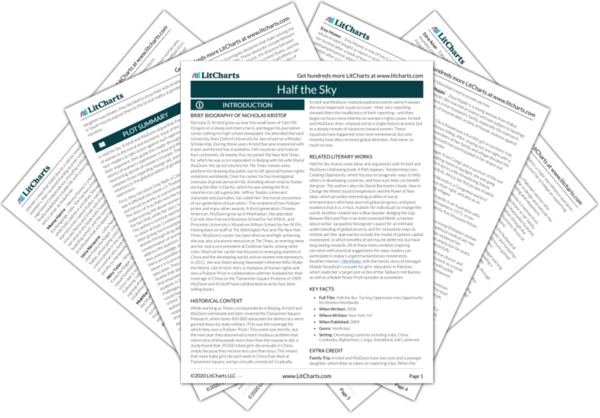The story of Ramatou Issoufou isn’t a purely happy one, since even though she and her baby were saved, they were saved by the fortuitous presence of Western journalists. Put another way, while Allan Rosenfield’s legacy did make safe childbirth more likely, it didn’t guarantee that Nigerian women would receive good health care. Financial obstacles—modest in American dollars—can easily lead to maternal death, even with Allan’s positive influence. The authors of
Half the Sky are constantly trying to be realistic, to show both triumphs and that those triumphs aren’t complete, and much remains complicated and still be to accomplished.


